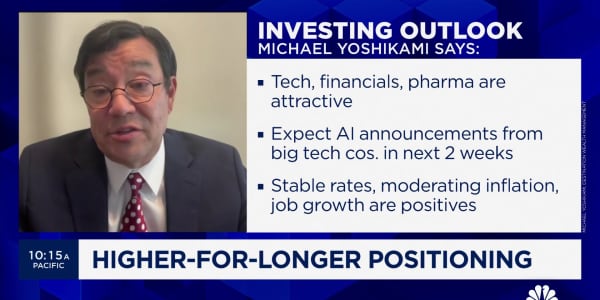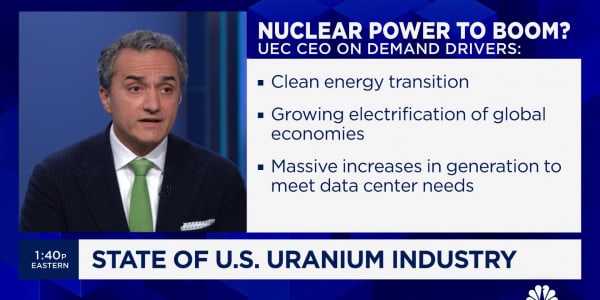When it comes to personal finance, knowledge alone doesn't appear to equal financial health.
Financial literacy has been a hot topic since the Great Recession as many people realized the disconnect between the financial products they use and their understanding of them. There is a growing industry in the U.S. geared toward teaching young people about their finances, but there's a question of whether education is enough.
A recent study led by Philip Zimbardo, of the Stanford Prison Experiment, and MagnifyMoney, a start-up that educates and empowers consumers about financial products, finds a surprising disconnect between knowing about financial products and putting that knowledge to work.
"Financial decisions, like any decision, like the decision to have an ice cream sundae knowing you're diabetic, are often based on things within us that we're unaware of," Zimbardo said. "In this case, it's our time-perspective personality—the extent to which we are biased to overuse the future, the present, the past."
Applying his research on time perspective, which was documented in his book "The Time Paradox," Zimbardo, along with his former student and MagnifyMoney co-founder Nicholas Clements, studied how financial decision-making is shaped by relationship to time.
Read More10 steps to save more than $1,000 by year-end
"People will cut coupons in the Sunday paper to save 10 cents on a gallon of milk," Clements said. "But when you look at what's really costing them money, which tends to be credit card debt, fees on checking accounts, overdrafts and payday lending and those horrible things, they don't do it because it's a complicated world and people feel intimidated."
The study had 3,049 participants spread equally across six countries: the U.S., U.K., Germany, Italy, Brazil and Hong Kong. There was equal participation of men and women as well as an equal dispersion between baby boomers and millennials.
Participants were asked to complete the Zimbardo Time Perspective Inventory (ZTPI)—a self-assessment of financial literacy, a test of financial acumen and an assessment of financial health. The result was a unique mapping of economics and psychology, particularly how both disciplines use time.
A number of cultural and generational themes emerged from the study, but one in particular: A high degree of financial knowledge was equally correlated to financial health and financial sickness. Or, put another way, one's financial knowledge could not predict how they would apply that knowledge in their own life.
Read More 6 risks that rock retirement plans
There was, however, a strong correlation between how people experienced time and their financial health.
Zimbardo's study grouped people into past-oriented, present-oriented, or future-oriented.
Past-oriented people fall into two camps but are more likely to be financially healthy. There are the memory hoarders whose romanticized memories of the past make them less speculative and more likely to hold onto cash.
Then there are the once-bitten, twice-shy camp—also financially conservative but often because they experienced financial hardship in the past.
Present-oriented people, meanwhile, tend to be hedonists who seek instant gratification and have a difficult time finding their way out of financial trouble.
Read MoreRetire? Not 'til you pay off that student loan debt
Finally, future-oriented people are constantly striving to an end point. With good advice, they may be successful but with bad advice, they are likely to purchase costly insurance that doesn't fit their needs.
Zimbardo and the MagnifyMoney team believe that once people are armed with information about their finances, the options available to them, and an understanding of their time perspective, they will be empowered to make better decisions.
Clements brings up the story of a woman he interviewed in Tennessee who had a credit score in the high 700s, was $12,000 in debt and earning $27,000 a year. Her financial state suggests a present-oriented mindset. As such she could not imagine a future where she was not struggling. The key she missed, though, was that despite her high debt, her credit score gave her power in negotiating a lower-rate card to find her way out of debt quicker and cheaper.
There is an opportunity for using MagnifyMoney's approach with the millennial generation.
The ZTPI shows that millennials fall in the past-oriented camp. Many entered the workforce during the Great Recession. Their recent work and financial history is plagued with uncertainty, prompting many to avoid some of the career risks that are encouraged in that age group.
They are more likely to stay in jobs that are perceived to be safe while missing opportunities for higher pay and benefits. Despite their uncertainty, many millennials have a relatively high level of financial acumen and financial health—especially in comparison to the baby boomer generation that perceives its financial knowledge to be high but in reality faces high mortgage debt and inadequate retirement savings.
Read More 1 in 5 need credit cards to survive
To promote financial health, MagnifyMoney provides scorecards of many banking and credit card companies along with the ZTPI and instructional videos featuring Zimbardo to encourage people to delve deeper into their finances.





